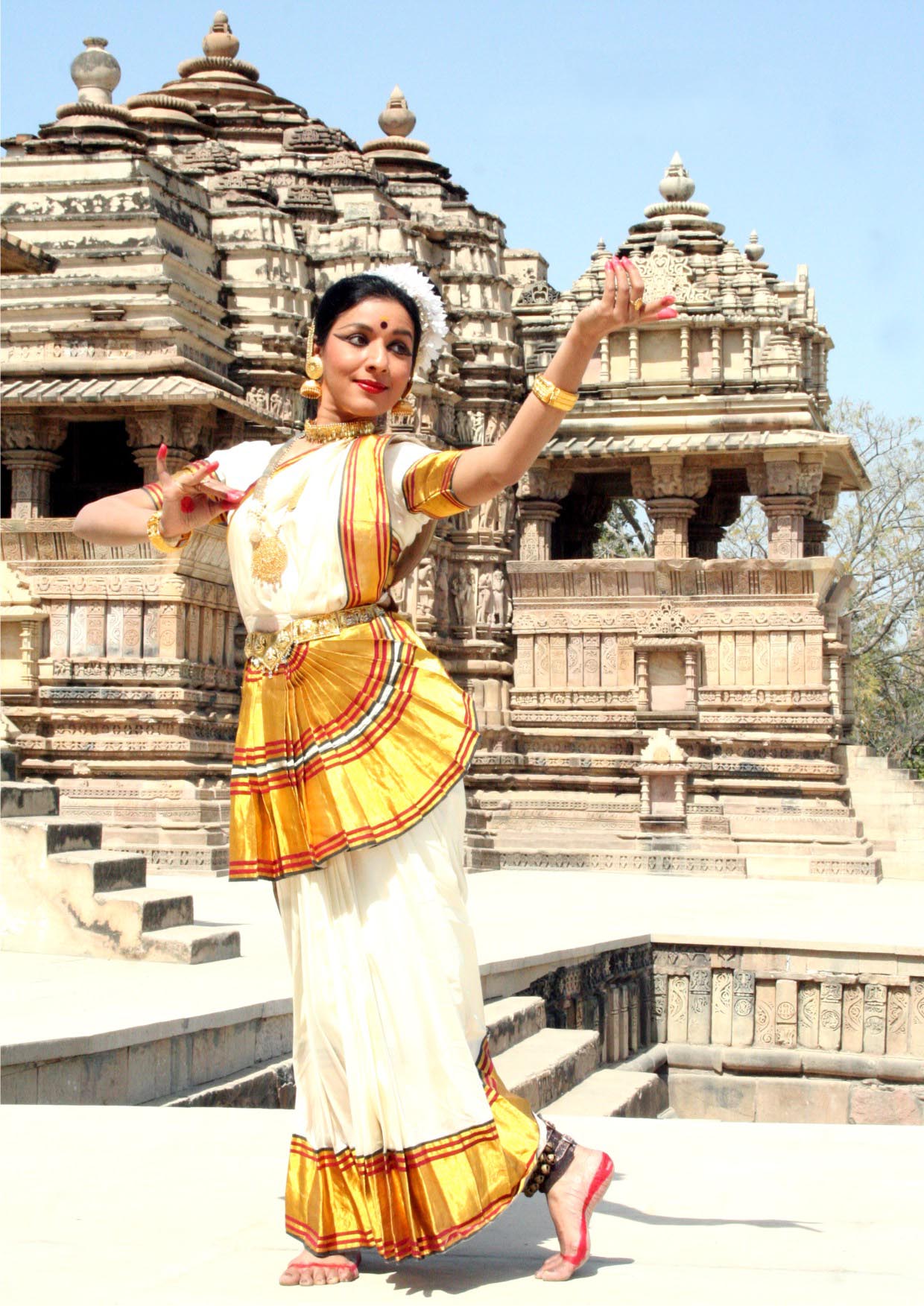Vijayalakshmi is known for her command over traditional Mohiniyattam as well as her experimental approach to choreography, her cross-cultural investigations and her emphasis on feminist activism. She trained under her mother and guru, Bharati Shivaji, who was integral in reviving the concert dance in the Indian postcolonial era. Vijayalakshmi's work has been instrumental in raising awareness about this Indian dance form; she also departs from the conventional aesthetic by introducing intercultural and feminist themes, while engaging in artistic collaborations with dancers, composers, and musicians from around the world.
Mohiniyattam is from the state of Kerala and is one of the eight recognized forms of classical dances in India. Mohiniyattam dates back to the 16th century, but was suppressed by the British colonial regime until the 1920’s. This rich and sophisticated dance form is characterized by graceful, rhythmic footwork and expressive hand movements. Music played during the performance incorporates varied rhythms and customarily lyrics are in Manipravala, which is a mix of Sanskrit and Malayalam language.
Within WACD, emphasis is placed on global forms and diverse approaches to choreography, and by attending lectures and workshops, students will have a chance to become acquainted with a style of dance not well known in the United States. Forms such as Bharatanatyam, Kathak, and commercial Bollywood dance are recognized most commonly in the U.S., but Vijayalakshmi brings firsthand knowledge of the lesser-known Mohiniyattam to WACD students. She has a unique perspective, given that she has witnessed the regeneration of Mohiniyattam as a classical concert form, and is now exploring novel directions by expanding its grammar and parameters.
Mohiniattam dance offers a view of South Asian cultural values and philosophies, and also shows how art is changing in the contemporary moment as a result of greater intercultural encounters and globalization of Indian forms. The UCLA community is invited to attend the public events on Sunday, February 2 and Wednesday, February 5 to engage South Asian culture as a lived practice, rather learning about its complexities from text or visual sources. Events information can be found at https://www.wacd.ucla.edu/events.
